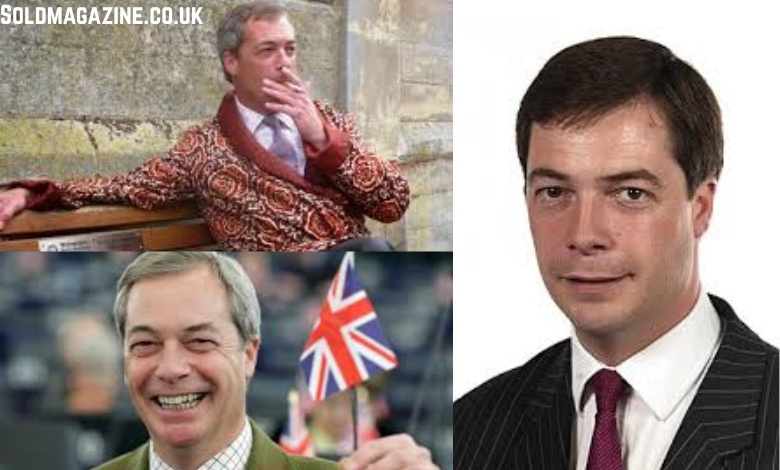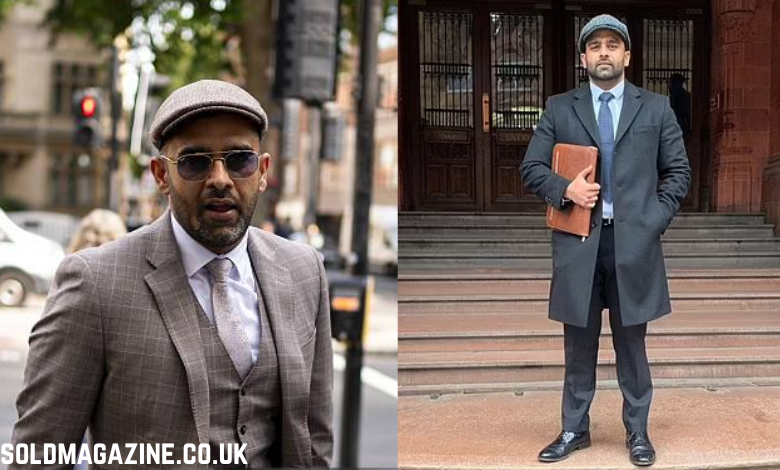Introduction
Guy Justus Oscar Farage is a well-known British politician who has played a significant role in shaping modern British politics. Most famous for his leadership in the Brexit movement, Farage has been a key figure in the UK’s departure from the European Union. His journey from a commodities trader to a prominent political leader is both fascinating and controversial. This article will take a closer look at Farage’s life, his rise to political prominence, and the lasting impact he has had on UK politics.
Early Life and Background
Born on April 3, 1964, in Farnborough, Kent, Nigel Farage grew up in a middle-class family. His father, Guy Justus Oscar Farage, worked as a stockbroker, and his mother, Barbara, was a homemaker. Farage attended Dulwich College, a private school in London, where he developed a keen interest in history and politics. This early exposure to political issues sparked his long-term passion for the subject, particularly for the European Union. After completing his education, Farage worked in the City of London as a commodities trader. His time in the financial sector provided him with a solid understanding of economics and global finance. This experience would later shape his political views, especially his stance on the European Union.
Getting into Politics
Farage’s political career began in the early 1990s when he joined the Conservative Party. However, he quickly grew disillusioned with their approach to the European Union. Farage’s growing skepticism about the EU led him to leave the Conservative Party and join the United Kingdom Independence Party (UKIP) in 1993. At UKIP, Farage found a platform that aligned with his views on the European Union. He was soon elected as a candidate for the European Parliament and quickly became one of the party’s most vocal members. Farage’s opposition to the EU became a defining characteristic of his political career, setting the stage for his future influence.
Leadership of UKIP
In 2006, Farage became the leader of UKIP, a position he would hold in two non-consecutive terms. Under his leadership, UKIP focused strongly on Euroscepticism, with Farage positioning the UK’s departure from the European Union as the party’s main goal. Farage’s leadership style was charismatic and direct, which helped him connect with voters who felt their concerns were not being addressed by the main political parties.
During his time as UKIP’s leader, the party gained traction, and Farage’s voice became louder within British politics. In the 2009 European Parliament elections, UKIP performed well, securing the second-largest share of the vote in the UK. This success was a sign of the growing dissatisfaction with the European Union and a desire for change.
The 2014 European Elections and the Brexit Movement
The 2014 European Parliament elections marked a key moment for Farage and UKIP. The party won the most seats in the UK, a victory that was a direct challenge to the political establishment. Farage’s leadership played a crucial role in this success, and it helped solidify his position as one of the most influential political figures in the country.
This victory also contributed to the growing calls for a referendum on the UK’s membership in the European Union. Farage’s influence was undeniable, and his work in the European Parliament laid the groundwork for the 2016 EU referendum. By this time, the issue of EU membership had become a central point of debate in British politics, and Farage was at the forefront of the movement advocating for the UK to leave the EU.
The 2016 EU Referendum: Farage’s Defining Moment
Farage’s most significant political achievement came in the 2016 EU referendum. As one of the leaders of the “Vote Leave” campaign, Farage played an instrumental role in convincing voters that leaving the European Union was in the UK’s best interest. His message focused on issues like national sovereignty, immigration control, and the need for the UK to regain full control over its laws and borders.
Farage’s leadership in the campaign was marked by his direct and often controversial rhetoric. He rallied support by appealing to voters who felt that the EU was imposing regulations and policies that were harmful to Britain. His influence in the Brexit movement was a major factor in the victory of the “Leave” campaign, with 51.9% of voters choosing to leave the European Union.
Post-Brexit Career
After the 2016 referendum, Farage briefly stepped down as leader of UKIP but remained an active figure in British politics. He continued to advocate for a clean break from the European Union and criticized the government’s handling of the Brexit process. In 2019, Farage returned to UKIP and shifted the party’s focus towards broader political issues beyond Brexit.
In 2020, Farage founded the Reform UK party, aiming to fill the space left by the dissolution of the Brexit Party. His return to politics was met with mixed reactions, but his influence on the political landscape remained strong. Farage continued to speak out on issues such as national sovereignty and the state of British democracy.
Farage’s Political Philosophy
Throughout his political career, Farage has been a staunch Eurosceptic, believing that the United Kingdom should have the freedom to govern itself without interference from the European Union. He has often criticized the EU for what he sees as its undemocratic nature and its control over member states. Farage believes that the UK’s membership in the EU eroded its national identity and sovereignty, and he campaigned for Brexit as a way to regain control over the country’s laws, borders, and economy.
In addition to his Euroscepticism, Farage has also advocated for limited government, lower taxes, and stronger national security. His political views have earned him both passionate supporters and vocal critics, but there’s no denying that his influence on British politics has been profound.
Farage’s Legacy
Guy Justus Oscar Farage’s legacy in British politics is undeniable. He was a driving force behind the Brexit movement and played a critical role in securing the UK’s departure from the European Union. His leadership of UKIP and later Reform UK helped to reshape the political landscape of the United Kingdom, and his impact on public discourse is still felt today. While Farage remains a divisive figure, his contributions to British politics are significant. He gave a voice to many people who felt disconnected from the political establishment and brought issues like immigration and national sovereignty to the forefront of public debate.
Conclusion
Guy Justus Oscar Farage is a figure whose political journey has been marked by controversy, leadership, and a deep commitment to his vision of a sovereign United Kingdom. From his early days as a commodities trader to his role as a leader of UKIP and the Brexit movement, Farage’s career has been anything but ordinary. While his views and methods have often sparked debate, his influence on British politics is clear. Farage’s legacy will likely continue to shape political discussions for years to come. Whether one agrees with his views or not, it is impossible to ignore the significant role he has played in the UK’s political history. His rise to power, his leadership in the Brexit campaign, and his ongoing influence make Guy Justus Oscar Farage a key figure in the modern political landscape.
FAQS
1. Who is Guy Justus Oscar Farage?
Guy Justus Oscar Farage is a British politician known for his role in the Brexit campaign and as UKIP leader.
2. What was Farage’s role in Brexit?
Farage was a key advocate for the UK’s exit from the European Union, leading the “Leave” campaign in 2016.
3. What political party did Farage lead?
Farage led the UK Independence Party (UKIP) and later founded Reform UK, focusing on Euroscepticism and political reform.
4. When did Farage serve in the European Parliament?
Farage represented South East England as a Member of the European Parliament (MEP) from 1999 until the UK’s exit from the EU in 2020.
5. What is Farage’s legacy in British politics?
Farage’s legacy centers around his influential role in the Brexit referendum, reshaping British politics and public discourse.




